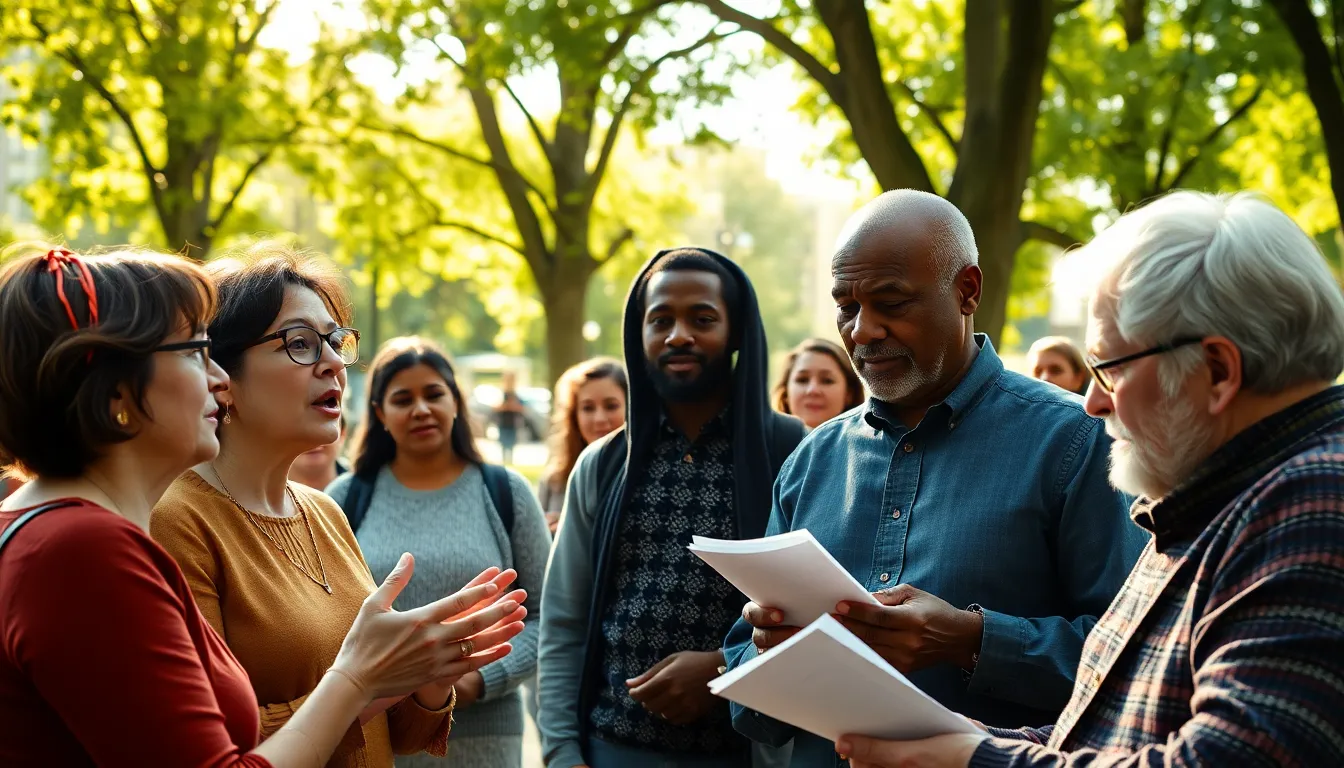Political science might sound like a dry subject reserved for stuffy classrooms, but it’s anything but boring. In a world where decisions made in government offices can affect everything from your morning coffee prices to your weekend plans, understanding political science is crucial. It’s the GPS guiding citizens through the often chaotic landscape of politics, helping them navigate elections, policies, and power dynamics.
But why should anyone care about political science? Well, it’s not just for aspiring politicians or policy wonks. It empowers individuals to engage in meaningful conversations, make informed decisions, and even throw a witty quip at the next family gathering. Whether you’re a casual observer or a passionate activist, grasping the importance of political science can transform how one interacts with the world. Buckle up as we explore ten compelling reasons why this field deserves a front-row seat in everyone’s education.
Table of Contents
ToggleUnderstanding Political Science
Political science studies political institutions, processes, and behavior. It investigates how governments operate, policies are developed, and citizens engage with political systems. Examining the foundations of governance creates a framework for understanding various political ideologies and their implications.
Understanding political science offers insights into the role of power within society. Power dynamics shape relationships among citizens, political parties, and governmental institutions. By analyzing these dynamics, scholars can predict how shifts in power may influence governance.
Studying political science fosters critical thinking skills. It encourages individuals to assess information critically, evaluate arguments, and form coherent opinions. This analytical approach empowers individuals to tackle complex issues with confidence.
Political science lays the foundation for civic education. It equips citizens with the knowledge needed to participate actively in democracy. Familiarity with electoral processes, public policies, and human rights enables informed citizenry and active engagement in societal issues.
This discipline emphasizes the importance of international relations. Understanding global politics is crucial in an increasingly interconnected world. Students learn about diplomacy, conflict resolution, and the impact of globalization on national policies.
Moreover, political science highlights the significance of public policy analysis. It provides tools for assessing policy effectiveness and social justice implications. Such evaluations lead to improved governance and better-quality public services.
Political science also investigates historical contexts. Recognizing how historical events shape current political landscapes allows for a richer understanding of ongoing issues. Events such as revolutions, wars, and treaties significantly influence political systems.
Through the study of political theory, individuals explore fundamental ideas about justice, democracy, and authority. This exploration fosters ethical considerations in political decision-making. Engaging with diverse theories helps refine personal values and principles.
Political science advocates for social change. Through research and advocacy, it addresses pressing societal issues like inequality, discrimination, and environmental challenges. Awareness of these issues motivates active participation in creating positive change.
Ultimately, understanding political science cultivates informed global citizens. This knowledge empowers individuals to engage in constructive discourse, advocate for their beliefs, and contribute positively to society.
Ten Importance Of Political Science

Political science plays a critical role in shaping understanding of our societies and governance. Here are ten key reasons highlighting its significance.
Enhancing Critical Thinking Skills
Critical thinking skills find a prominent place in political science education. Students analyze complex political issues, evaluate different arguments, and assess evidence. These skills empower individuals to make informed decisions and engage in meaningful discussions over political matters.
Promoting Civic Engagement
Civic engagement thrives through political science studies. Individuals grasp the importance of voting and participating in community initiatives. Understanding political structures fosters active citizenship and encourages involvement in democratic processes.
Understanding Government Functions
Government functions reveal the mechanics of political systems. Political science examines various branches of government and their roles. This knowledge equips citizens to interact effectively with public institutions.
Analyzing Political Behavior
Political behavior analysis offers insights into voter motivations and actions. Political scientists study patterns of behavior and group influences. Such understanding aids in anticipating electoral outcomes and addressing public needs.
Studying Public Policies
Public policy studies delve into legislation and its implications. Political science equips individuals with tools to evaluate policy effectiveness. This enables citizen involvement in advocacy and policy reform efforts.
Fostering International Relations
International relations exploration helps individuals comprehend global interactions. Political science highlights diplomacy, conflicts, and alliances. This knowledge fosters a sense of global awareness and encourages responsible international engagement.
Protecting Human Rights
Human rights protection becomes a focus in political science discussions. The discipline explores legal frameworks and advocacy efforts. Understanding these rights empowers individuals to participate in social justice movements.
Encouraging Ethical Leadership
Ethical leadership discussions impact societal values. Political science emphasizes the importance of integrity and accountability in leadership. This encourages future leaders to prioritize ethical decision-making.
Supporting Economic Development
Economic development insights emerge through political science study. Individuals learn how governmental policies impact economies. Understanding these connections supports informed voting and advocacy for progressive economic strategies.
Preparing for Various Careers
Career preparation stands as a critical aspect of political science training. Graduates enter fields such as law, public policy, and international relations. Versatile skills acquired through political science create numerous professional opportunities.
Political science is fundamental in shaping informed and engaged citizens. Its relevance extends beyond academic pursuits into everyday life. By understanding political systems and dynamics individuals can participate effectively in democracy and advocate for social change.
The discipline fosters critical thinking and ethical leadership while addressing pressing societal issues. As the world becomes increasingly interconnected, the insights gained from political science are invaluable. They empower individuals to navigate complexities and contribute positively to their communities.
Ultimately, embracing political science enriches personal and civic life, creating a society where informed discourse thrives and positive change is possible.



